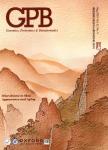Role of Stable Isotopes in Life——Testing Isotopic Resonance Hypothesis
Role of Stable Isotopes in Life——Testing Isotopic Resonance Hypothesis作者机构:Division of Physiological Chemistry I Department of Medical Biochemistry and Biophysics Karolinska Institute SE-17 177 Stockholm Sweden
出 版 物:《Genomics, Proteomics & Bioinformatics》 (基因组蛋白质组与生物信息学报(英文版))
年 卷 期:2011年第9卷第1期
页 面:15-20页
核心收录:
学科分类:0710[理学-生物学] 07[理学] 071007[理学-遗传学]
基 金:supported by the Swedish Research Council (Grant 2007-4410)
主 题:origin of life stable isotope isotopic resonance
摘 要:Stable isotopes of most important biological elements, such as C, H, N and O, affect living organisms. In rapidly growing species, deuterium and to a lesser extent other heavy isotopes reduce the growth rate. At least for deuterium it is known that its depletion also negatively impacts the speed of biological processes. As a rule, living organisms "resist" changes in their isotopic environment, preferring natural isotopic abundances. This preference could be due to evolutionary optimization; an additional effect could be due to the presence of the "isotopic resonance". The isotopic resonance phenomenon has been linked to the choice of earliest amino acids, and thus af- fected the evolution of genetic code. To test the isotopic resonance hypothesis, literature data were analyzed against quantitative and qualitative predictions of the hypothesis. Four studies provided five independent datasets, each in very good quantitative agreement with the predictions. Thus, the isotopic resonance hypothesis is no longer simply plausible; it can now be deemed likely. Additional testing is needed, however, before full acceptance of this hypothesis.



